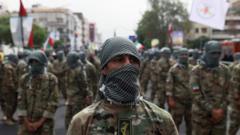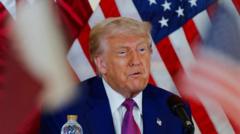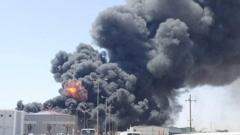In a bid to forge peace regarding Iran's nuclear ambitions, President Trump aims for a new deal, yet he confronts resistance from within his party and deeply rooted regional tensions.
Trump's Dilemma: Pursuing a New Iran Deal Amidst Opposition

Trump's Dilemma: Pursuing a New Iran Deal Amidst Opposition
The Trump administration's push for a fresh agreement with Iran faces critical challenges from both domestic politicians and the international landscape.
By all indications, President Trump is eager to negotiate a deal with Iran concerning its nuclear program in order to avoid military conflict, sidestepping recommendations from Israel for a preemptive military strike. "I want to make a deal with Iran," Trump stated during his recent visit to Saudi Arabia. "If I can make a deal with Iran, I’ll be very happy, as it will make your region and the world a safer place."
Trump’s journey through Gulf Arab states highlighted his determination to reduce tensions. After years of negotiations leading to a 2015 agreement where Iran consented to limit its nuclear program, a shift occurred: previously, these Gulf States viewed Iran as a perilous opponent and sought its isolation. Now, they are reopening lines of communication and prefer a peaceful resolution to avert additional instability, particularly with ongoing conflicts, such as the one in Gaza.
During Trump's visit, Arab leaders consistently urged him to pursue a diplomatic resolution with Iran, emphasizing that the repercussions of failing to do so would be dire. Ali Vaez, Iran director for the International Crisis Group, pointed out, “The alternative is terrible for them; Iran with a bomb or Iran bombed both have bad consequences for the region.”
However, any agreement will challenge the most hawkish faction of Trump's supporters within the Republican Party, who traditionally demand the full dismantlement of Iran's nuclear capabilities. Recently, more than 200 congressional Republicans sent a strong letter urging the president to remain resolute in his stance against Iran.
The prospect of a nuclear-armed Iran poses grave concerns, potentially triggering an atomic arms race across the Middle East and exacerbating regional instability, raising the stakes for miscalculations among opposing factions.





















